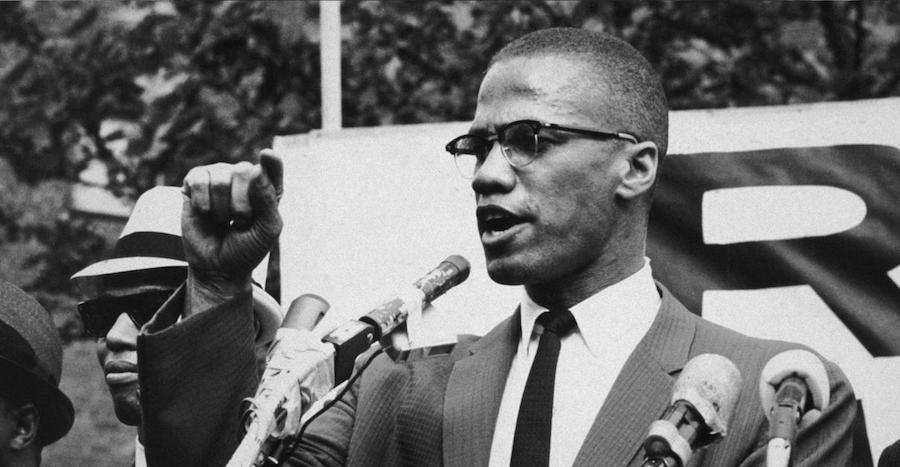In Remembrance of Malcolm X
His life, legacy, and death
On February 21, 1965, influential human rights activist Malcolm Little, better known as Malcolm X, was assassinated. Malcolm X is predominantly known for being a leader in the civil rights movement and a supporter of black nationalism. His best-selling book “The Autobiography of Malcolm X” educated many people and inspired the Black Power Movement.
Malcolm Little did not have an ideal childhood. His family moved from Nebraska to Michigan after his father, a Baptist preacher, received threats from the Ku Klux Klan. His father was later allegedly killed by two white supremacist men who were a part of a group called Black Legionaries. His mother suffered a nervous breakdown soon after and Malcolm entered the foster care system.
At a young age, Malcolm got involved in drug dealing as well as committing armed robberies. He was eventually arrested in Boston after a house burglary. He was sentenced to ten years in prison, but ended up only serving seven. His time in jail led to him turning his life around. He became intrigued with the Islamic religion and began praying, studying Latin and English, abandoning his use of drugs, and joining the prison debate team.
After Malcolm was released from prison on parole he became a part of the Detroit temple of the Nation of Islam, also known as “Black Muslims, a Black nationalist group that identified white people as the devil” (history.com). He dropped his last name “Little” which was given to one of his ancestors by a slave owner and changed it to “X” to represent the lost names of his ancestors.
Malcolm X met the leader of the Nation of Islam, Elijah Muhammad, and soon after became the Nation’s first national minister. He became well known even outside of the Muslim community as he advocated for black unity and militancy. After gaining much attention with the public, Malcolm X was kicked out of the Nation of Islam.
Malcolm X had a spiritual transformation after he took part in the pilgrimage to Mecca. During the pilgrimage, he saw men of all color and nationalities coming together and demonstrating the meaning of equality. He wrote, “They were of all complexions, the whole atmosphere was of warmth and friendliness. The feeling hit me that there really wasn’t any color problem here. The effect was as though I had just stepped out of a prison.”
Malcolm X had gone from the belief that all white people were evil and the need for black separatism to seeing equality in everyone around him. On April 20, 1964, while in Mecca he wrote, “America needs to understand Islam, because this is the one religion that erases the race problem from its society. The white man is not inherently evil, but America’s racist society influences him to act evilly.”
The Muslim Mosque, Inc. was founded by Malcolm X soon after he left the Nation of Islam. The organization’s members consisted of those who were originally a part of the Nation of Islam. After Malcom X returned from Mecca, his goal was to preach the true teachings of Islam.
Malcolm X, along with other black nationalist leaders, co-founded the Organization of Afro-American Unity in 1965. He saw OAAU “as a secular vehicle to internationalize the plight of Black Americans and to make common cause with the people of the developing world—to move from civil rights to human rights” (britannica.com).
Noelle Hilario ‘21 said, “I think Malcolm X is a brave and inspiring leader who helped instill the idea of civil rights for black people. His ideas and sometimes crazy actions inspired many people to raise their voices and truly fight for a better, fair future.”
Malcolm X was assassinated on February 21, 1965 while giving a speech at the Audubon Ballroom in Harlem by three members of the Nation of Islam. Through his speeches and ideas, Malcolm X contributed immensely to the Black Power movement and the development of Black nationalist ideology. He influenced the idea of independence and autonomy within the American community in the 1960s and 70s. Malcolm often advocated for achieving equal rights by “any means necessary.” He had a more violent approach than fellow civil rights activist Martin Luther King Jr who preached peace and harmony between whites and African Americans.
Decades after Malcolm X’s death, his legacy still carries on. Many landmarks were placed honoring his name, mostly in Harlem where he lived and preached for many years. Malcolm X Boulevard runs north to south within the heart of Harlem. A local neighborhood is also home to the Masjid Malcolm Mosque (Mosque No. 7) where he used to preach. There are many schools and performing arts centers that are named after him, including a library in California’s very own San Diego. Malcolm X is a widely celebrated figure within African-American and Muslim American communities for his pursuit of racial justice. He was honored with Malcolm X Day (May 21st), on which he is commemorated in various cities across the United States. Hundreds of streets and schools in the U.S. have been renamed in his honor, while the Audubon Ballroom, the site of his assassination, was partly redeveloped in 2005 to accommodate the Malcolm X and Dr. Betty Shabazz Memorial and Educational Center.
Ms. McKenzie says “Fifty-six years after his assassination, the legacy of Malcolm X continues to compel African Americans to oppose systemic racism in the U.S.”
Overall, Malcolm X’s fight for civil rights will be remembered especially this month being Black History Month and the anniversary of his passing.

